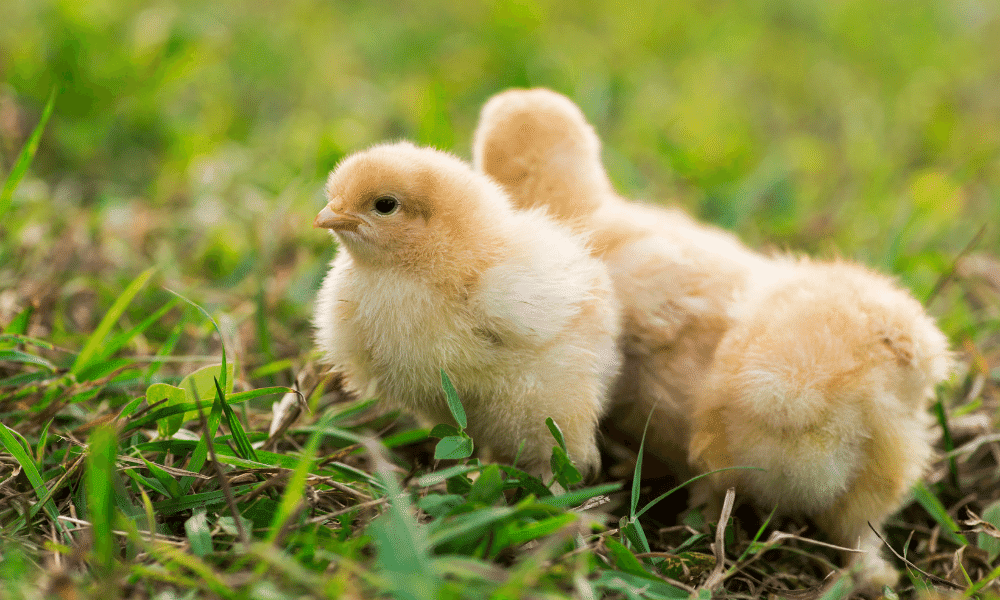Coccidiosis in Farm Animals and Humans: A Comprehensive Guide
What is Coccidiosis?
Coccidiosis pronunciation (coc·cid·i·o·sis) is a parasitic disease caused by protozoan parasites known as coccidia. Coccidiosis primarily affects the intestinal tract of farm animals and pets. In rare cases, it can affect humans, typically those with weakened immune systems. This blog will explore the life cycle of coccidia, its symptoms, transmission, risk factors, diagnosis, how to cure coccidiosis in chickens, prevention strategies, and its impact on farming. We will also discuss the zoonotic potential of coccidiosis, and its occurrence in different farm animals, and address common myths surrounding the disease.
Coccidiosis under microscope
How Do Animals Get Coccidiosis?
Animals usually contract coccidiosis by ingesting food, water, or surfaces contaminated with coccidia oocysts, the infective stage of the parasite.
Life Cycle of Coccidia
Coccidia have a complex life cycle that involves both sexual and asexual reproduction. The life cycle begins when an animal ingests oocysts (the infective stage) from contaminated food, water, or surfaces. The oocysts release sporozoites that invade the intestinal cells once ingested where they multiply and develop into new oocysts. These oocysts are then excreted in the feces, continuing the cycle.
Symptoms of Coccidiosis
Symptoms of coccidiosis can vary significantly by species. Common signs include:
Diarrhea (often bloody)
Weight loss
Dehydration
Lethargy
Poor growth rates in young animals
Coccidiosis in Chickens Symptoms
Coccidiosis in chicken is characterized by several signs and symptoms. Affected birds may exhibit lethargy, poor appetite, and weight loss. One of the most notable symptoms is diarrhea, which can be bloody in severe cases. Other symptoms of coccidiosis in chickens include ruffled feathers, dehydration, and a decrease in egg production. Among common chicken diseases coccidiosis stands out for its potential to impact flock health and productivity if not managed effectively. Recognizing coccidiosis in chickens signs and symptoms early is crucial for effective treatment and management of chicken coccidiosis.
Coccidiosis in Hens
While coccidiosis can affect all chickens, there are some differences in how it manifests in hens compared to younger birds or roosters. Coccidiosis in hens symptoms may have a more pronounced impact on egg production, as stressed hens may stop laying eggs altogether. In contrast, younger chickens, or chicks, may show more severe gastrointestinal symptoms. Understanding these differences is essential for effective management and cure for coccidiosis in chickens, helping poultry farmers respond quickly to symptoms.
Coccidiosis in Chicks
Coccidiosis in chicks is a significant health concern that can lead to severe gastrointestinal distress. Caused by coccidian protozoa, this parasitic disease primarily affects young birds, making them particularly vulnerable. Symptoms of coccidiosis in chicks include diarrhea, which may become bloody in severe cases, lethargy, and poor appetite. Infected chicks may also exhibit ruffled feathers and dehydration. The disease spreads through contact with infected feces or ingestion of contaminated feed, highlighting the importance of maintaining a clean environment. Early detection and treatment are crucial, as untreated coccidiosis chick cases can lead to high mortality rates in young poultry. Effective management strategies, including proper sanitation and the use of anticoccidial medications, can help mitigate the impact of coccidiosis in chick populations, especially young and vulnerable birds.
Coccidiosis Medication for Chickens
Treating chickens with coccidiosis involves a comprehensive approach, including coccidiosis medicine for chickens, supportive care, and preventive measures to control outbreaks and alleviate symptoms. Coccidiosis in chickens medication typically controls symptoms and manages outbreaks rather than completely curing the parasite, emphasizing the importance of preventive care. Proper dosing and treatment duration are essential for effectiveness. These treatments help control the coccidia population in the intestines and alleviate the symptoms of coccidiosis in chickens. It is crucial to follow the recommended dosage and treatment duration to ensure effective coccidiosis chicken treatment. Early intervention is essential when managing chickens coccidiosis to reduce the spread and severity of symptoms within the flock.
In addition to medication, providing supportive care is essential for chickens with coccidiosis. This includes ensuring access to clean water and nutritious food to aid in their recovery. Coccidiosis in chickens natural treatment options focus on using herbal remedies, probiotics, and dietary supplements that may help support the bird’s immune system. It’s important to consult with a veterinarian before using natural treatments. To learn how to treat coccidiosis in chickens naturally, farmers can incorporate ingredients like garlic, apple cider vinegar, and diatomaceous earth(DE) into their chickens' diets.
Maintaining proper hygiene in the coop, such as regular cleaning and disinfection, is vital to prevent reinfection and reduce the spread of the disease. Monitoring the flock for signs of coccidiosis in chickens, including diarrhea, lethargy, and poor appetite, is essential. Implementing biosecurity measures can further protect against coccidiosis outbreaks. Understanding how do chickens get coccidiosis and recognizing the symptoms of coccidiosis in chickens is key to effective treatment for coccidiosis in chickens and managing coccidiosis disease in poultry.
Coccidiosis Vaccine for Chickens
The coccidiosis vaccine poultry producers use, particularly for chickens, can be an effective preventive measure, though it only protects against certain strains of coccidia. Vaccination is typically part of a broader management strategy to control the disease. Administering a coccidiosis vaccine for poultry can significantly reduce the incidence of the disease, promote healthier flocks, and improve overall production in poultry farming. Recognizing coccidiosis disease symptoms in poultry and implementing treatment for coccidiosis in poultry are vital for maintaining flock health and preventing outbreaks of chicken illness coccidiosis.
In summary, effective coccidiosis treatment chicken involves a combination of coccidiosis medication for chickens, supportive care, and preventive strategies such as vaccination. By understanding the signs of coccidiosis in chickens and employing both traditional and natural treatment methods, farmers can successfully treat chicken coccidiosis ensuring the health and productivity of their flocks.
Popular searches: coccidiosis in chickens treatment, treatment of coccidiosis in poultry
Coccidiosis Chicken Poop Pictures
Marketplace
You might also be interested in...

Shop for chickens, livestock or other farm goods

About Farm Expo Events

Sell Your Chicks and Eggs
Coccidiosis in Goats
Coccidiosis in goats is a significant concern, particularly in young kids, as it can lead to serious health issues. The symptoms of coccidiosis in goats include diarrhea, which can be watery or bloody, weight loss, and lethargy. Recognizing goat coccidiosis symptoms early is essential for prompt treatment and improved recovery outcomes. Infected goats may appear tired and less active. They may also have a poor appetite and may not eat well. Recognizing these coccidiosis goats symptoms early is crucial for effective treatment and recovery.
Understanding how to treat coccidiosis in goats involves administering anticoccidial medications, ensuring proper hydration, and maintaining a clean living environment to prevent reinfection. Coccidiosis in goats treatment also involves ensuring they have a clean living space and access to fresh water and nutritious food to aid in their recovery. Natural treatment for coccidiosis in goats often includes the use of herbal remedies, probiotics, and dietary adjustments to support the immune system and promote recovery without relying on chemical medications. By addressing these factors, caregivers can help mitigate the impact of coccidiosis on their goats' health.
Keywords: coccidiosis in goats symptoms, goat coccidiosis
Coccidiosis in Sheep and Lambs
Coccidiosis in sheep is a significant concern, as it can affect both adult animals and young lambs, leading to similar symptoms. Adult sheep infected with coccidia may experience diarrhea, weight loss, and lethargy, which can adversely impact their overall health and productivity. Treatment for coccidiosis in sheep involves administering medication and maintaining a clean environment to prevent reinfection.
Coccidiosis in lambs is a significant concern, as these young animals are particularly susceptible to the disease, and the symptoms can be quite severe. Infected lambs often suffer from intense diarrhea, which may contain blood, and they can lose weight rapidly, leading to serious health issues. Lethargy is also common, with infected lambs appearing weak and inactive. This makes it crucial for caregivers to monitor their health closely and seek treatment when necessary. By addressing coccidiosis in both sheep and lambs, caregivers can effectively manage and mitigate the impact of this parasitic disease on their flock.
Coccidiosis in Cows and Cattle
Coccidiosis in cows is frequently observed in young calves, resulting in symptoms such as severe diarrhea, which can sometimes be bloody, along with weight loss and dehydration. Infected cows may also show signs of lethargy and reduced appetite, adversely affecting their growth and overall health. The disease is often triggered or exacerbated by stress, poor sanitation, and overcrowded living conditions, highlighting the importance of good management practices to prevent outbreaks.
An effective coccidiosis treatment in cattle includes medication, hydration support, and environmental management to prevent reinfection and control symptoms. Bovine coccidiosis treatment for cows generally involves administering anticoccidial medications, along with supportive care to manage dehydration and nutritional requirements. Timely detection and swift treatment are essential for reducing the impact of coccidiosis on the herd, ensuring the health and productivity of the affected animals.
Similarly, coccidiosis in cattle is common, leading to comparable symptoms such as diarrhea, weight loss, and dehydration. Recognizing the symptoms early and implementing effective treatment strategies for coccidiosis in calves is crucial for minimizing the effects of this parasitic disease on their health. As one of the most concerning calf diseases coccidiosis can significantly impact young cattle’s growth and overall health.
Coccidiosis in Dogs
Coccidiosis can affect dogs, particularly puppies, and it is important to recognize the symptoms for timely intervention. Infected dogs often experience diarrhea, which can be watery and may contain blood. They may lose weight as the illness progresses. Lethargy is common, with affected dogs appearing tired and less active than usual. Prompt attention to these symptoms is crucial for ensuring the health and well-being of dogs suffering from coccidiosis. Coccidiosis in dogs treatment typically involves medication prescribed by a veterinarian. It's also important to maintain good hygiene and cleanliness in their living environment to prevent the spread of canine coccidiosis.
Keywords: coccidiosis canine
Coccidiosis in Cats
Coccidiosis can also affect cats, especially those with weakened immune systems, making it essential for pet owners to be vigilant about their health. Coccidiosis in cats symptoms include severe and watery diarrhea, which can lead to significant dehydration. Infected cats may also experience weight loss as the illness progresses. Lethargy is common with affected cats appearing tired and less active than usual. Recognizing these symptoms early is crucial for ensuring prompt treatment and recovery. Coccidiosis in kittens Treatment is important to take them to the vet for proper treatment. Feline coccidiosis treatment may involve medication and supportive care, including ensuring they have access to clean water and nutritious food.
Coccidiosis in Rabbits
Rabbits can also be affected by coccidiosis, which can lead to severe gastrointestinal issues. Symptoms of coccidiosis in rabbits include diarrhea, weight loss, and lethargy. Treatment typically involves medication and supportive care, so consulting a veterinarian is crucial.
Coccidiosis in Pigs
Coccidiosis can also affect pigs, particularly piglets. Symptoms of coccidiosis in pigs include diarrhea, weight loss, and dehydration. If you suspect coccidiosis in pigs, consult a veterinarian for appropriate treatment options.
Coccidiosis in Horses
While coccidiosis is less common in horses, it can still occur. Symptoms may include diarrhea, weight loss, and lethargy. If you notice these signs in horses, it's important to seek veterinary care for proper diagnosis and treatment.
Zoonotic Potential
While coccidiosis is primarily a concern for animals, there is some potential for zoonotic transmission. Coccidiosis in humans is rare but can occur, particularly in immunocompromised individuals. Symptoms of coccidiosis in humans can include diarrhea, fever, abdominal pain, and nausea, particularly in individuals with weakened immune systems. It is essential to practice good hygiene when handling animals to minimize the risk of transmission.
Coccidiosis FAQ
-
Coccidiosis in goats is a parasitic disease caused by coccidia, which are microscopic organisms that infect the intestinal tract. It is particularly concerning in young kids and can lead to severe diarrhea, weight loss, and lethargy if not treated promptly.
-
Coccidiosis in chickens is a common intestinal disease caused by coccidia parasites. It affects the digestive system of chickens, leading to symptoms such as diarrhea, weight loss, and poor appetite. Chicken illness coccidiosis can significantly impact the health and productivity of poultry.
-
Coccidiosis chicken poop typically appears watery and may contain blood, especially in severe cases. Observing coccidiosis droppings can help identify the presence of the disease in chickens, and coccidiosis chicken poop pictures can provide visual references for affected feces. Recognizing symptoms of coccidiosis in poultry, like lethargy and bloody diarrhea, is vital for timely treatment and maintaining flock health.
-
Coccidiosis in chickens is primarily caused by the ingestion of coccidia oocysts, which are shed in the feces of infected birds. Poor sanitation, overcrowding, and stress can contribute to the spread of coccidiosis in poultry, making it essential to maintain a clean environment to prevent outbreaks.
-
Coccidiosis chickens often show symptoms like diarrhea (which may be bloody), weight loss, lethargy, and poor appetite. Recognizing these coccidiosis symptoms chickens early is crucial for effective treatment and recovery.
-
Coccidiosis treatment for chickens typically involves the use of anticoccidial medications. Additionally, providing a clean living environment and ensuring proper nutrition can aid in recovery. Natural treatment for coccidiosis in chickens may also include probiotics and herbal remedies.
Learning chicken coccidiosis treatment is important because early intervention can prevent severe health complications, reduce mortality rates, and ensure the overall productivity and well-being of the flock. Treating coccidiosis in chickens effectively involves medication, supportive care, and biosecurity to control disease spread.
-
Yes, coccidiosis in humans is possible, although it is rare. Humans can contract coccidiosis through contact with infected animals or contaminated environments. Proper hygiene and sanitation practices can help prevent transmission.
-
Kitten coccidiosis is a parasitic infection caused by coccidia, similar to that in goats and chickens. Symptoms of coccidiosis in cats include diarrhea, weight loss, and lethargy. Coccidiosis in cats treatment typically involves veterinary-prescribed medications.
-
Coccidiosis symptoms in goats include severe diarrhea, weight loss, lethargy, and poor appetite. Recognizing these signs early is essential for treating coccidiosis in goats effectively and preventing further health complications.
-
Yes, a 10% bleach solution can kill coccidia oocysts on hard surfaces, but it's less effective on porous materials. For best results, combine bleach cleaning with other sanitation and preventive measures.
-
Coccidiosis is pronounced as "coc·cid·i·o·sis"
Coccidiosis is a significant health concern for both farm animals and humans. Understanding its life cycle, symptoms, transmission, and coccidiosis cure options is crucial for effective management and prevention. By implementing good farming practices and staying informed, farmers can mitigate the impact of coccidiosis on their livestock and ensure a healthier environment for all.
Disclaimer: This blog provides general information on coccidiosis for educational purposes only and should not be mistaken as medical advice. If an animal exhibits symptoms of coccidiosis or any health concerns mentioned, please consult a professional veterinarian for proper diagnosis and treatment.
You might also be interested in…















Discover farmers markets near you with Roobeez! Explore local events, find seasonal and weekly markets, and shop fresh produce and handmade goods on our marketplace. Contribute to our growing directory by adding your favorite markets and community events. Supporting local has never been easier!